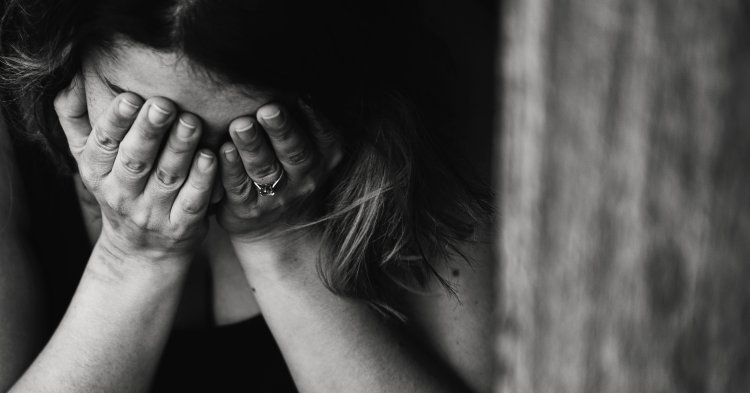According to a study by the DAPHNE EU Programme, every year 3,500 women are killed by their partners in 27 member states (excluding Croatia). Yet the issue with most cases of intimate partner violence against women is twofold. The EU Fundamental Rights Agency Survey on violence against women in 2014 showed that only 14% of women in the EU report instances of intimate partner violence to the police. The reasons for such low percentages are endless: fear, denial and even love stop many women from talking about the violence they experience.
Generally, the highest prevalence of gender-based violence is said to be found in Lithuania, Latvia and the Czech Republic, though the availability of data remains scarce as institutes such as the European Institute for Gender Equality (EIGE) only cover some 20 European countries, only 15 of which are EU member states. Moreover, discrepancies also find their way into data collection. For example, for a case to fall under the category of femicide, the sex of the victim and relationship with the perpetrator are taken into account, but according to a recent report published by EIGE, police forces in Denmark, Luxembourg, Greece, Lithuania, Malta and Poland don’t collect such information from homicide cases. The immediate question posed by all of this is, what is the European Union doing?
The European Union’s response
The EU has a number of legislative and practical instruments in place for the rights and protection of women and children against gender-based violence. This is notably through the 2012 ‘Directive establishing minimum standards on the rights, support and protection of victims of crime’, replacing the Council Framework Decision 2001/220/JHA directive. Through a strong emphasis on access and specialised support for victims, EU member states are mandated to provide appropriate access to shelters and emergency support for all victims upon the entire spectrum of domestic violence. Furthermore, the EU has also set up a number of instruments so that protection measures, namely restraining or barring orders issued in one member state, are recognised in another with less bureaucracy and more protection. Awareness campaigns co-funded by national governments and transnational projects run by NGOs aim to push forward the work being done by the Union in this respect.
A particular cause being pushed by the European Parliament is the ratification of the Council of Europe’s Istanbul Convention on preventing and combating violence against women and domestic violence. At present, 20 member states have ratified the convention. Different Members of the European Parliament have called out the member states which have not yet ratified the convention and expressed their dismay at these member states for not acknowledging the convention as the best possible solution to combat the issue. This is where the member states are, to a point, divided on the issue.
There is an element of reluctance from some member states due to certain misconceptions and misleading arguments surrounding the word gender in the convention, thus creating an “ideological baggage” in the text. These countries feel that this might fail to represent the more predominantly conservative values of certain member states by referring to gender as the socially constructed roles, behaviours, activities and attributes that a given society considers appropriate for women and men.
At a debate in March, some MEPs took the matter a step further, and denied that the Union has any competence on the issue, meaning that any legislative instruments passed would not be binding. These unsubstantiated claims of a lack of competence show a reluctance by these member states to even come to the table and discuss the issue, intransigence which should be of some concern given the importance of the matter.
This worrying development calls into question the true extent of victim protection under EU law. With such a high incidence of violence against women in the EU, protection standards should not be left to individual member states; harmonising and enforcing a single policy on domestic violence is an approach that keeps the victim’s best interests in mind. Commissioner Andrus Ansip quickly rebuked this political reluctance, reminding MEPs of the true essence of the protection which should supersede any socio-legal technicality – supporting victims of gender-based abuse.
Around 3,500 more women will lose the battle against domestic abuse by the end of next year. Though their voices may be lost, their fight will be carried on by the voices of fellow women, amplified by focalised organisations, legislation and societal awareness. The curtain of fear is steadily being drawn to finally let light into the lives of victims. Your voices are being heard too.


1. On 26 December 2018 at 19:26, by Monica Gaglione Replying to: ‘Hear Europe too’: The EU’s struggle to protect victims of domestic violence
Replying to: ‘Hear Europe too’: The EU’s struggle to protect victims of domestic violence
WOW Ally xxxx
2. On 4 June 2019 at 14:07, by Cathy McIver Replying to: ‘Hear Europe too’: The EU’s struggle to protect victims of domestic violence
Replying to: ‘Hear Europe too’: The EU’s struggle to protect victims of domestic violence
I would be interested in hearing more a oyt European support and developments regarding online abuse of women by men and the inadequacies of the law.
Follow the comments: |
|
